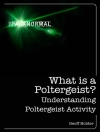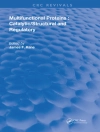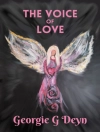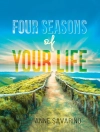Thoroughly updated based on the latest science, this empowering workbook gives you the skills to overcome obsessional thoughts and compulsive behaviors–and live a freer, happier life. Leading OCD specialist Dr. Jonathan Abramowitz presents a step-by-step program grounded in cognitive-behavioral therapy (CBT), the most effective treatment for the disorder. Vivid stories and numerous practical tools (which you can download and print for repeated use) help you: *Understand how OCD affects your mind and body. *Develop a customized plan for change. *Find relief from distressing intrusive thoughts. *Confront the situations you avoid–and discover a new sense of safety. *Break free of compulsive rituals. *Reduce anxiety and improve your relationships. The second edition is revised throughout with cutting-edge strategies for coping with unwanted thoughts that can’t be eliminated completely, plus new learning techniques drawn from brain research. Ready to get over OCD? Your journey starts here.
表中的内容
Introduction I. Getting to Know OCD 1. OCD 101: Learning about the Symptoms, Causes, and Treatments 2. Analyzing Your Own OCD Symptoms 3. Understanding How OCD Works II. Getting Ready 4. Customizing Your Treatment Plan 5. Strengthening Your Resolve to Move Forward III. Your Treatment Program Before You Begin 6. Challenging OCD at Its Foundation: Thinking Errors 7. Tackling Avoidance Behavior with Situational Exposure 8. Confronting Obsessional Thoughts, Doubts, and Images 9. Defying Your Compulsive Urges Putting It All Together 10. Ending Your Program and Staying Well Resources
关于作者
Jonathan S. Abramowitz, Ph D, ABPP, is Professor of Psychology and Neuroscience, Research Professor of Psychiatry, and Director of the Anxiety and Stress Disorders Clinic at the University of North Carolina at Chapel Hill. Dr. Abramowitz conducts research on OCD and other anxiety and stress-related disorders and has published over 150 peer-reviewed research articles and book chapters. His books for the general public include Getting Over OCD, Second Edition, and The Stress Less Workbook. He is a recipient of awards including the David Shakow Early Career Award for Distinguished Scientific Contributions to Clinical Psychology from Division 12 of the American Psychological Association.












